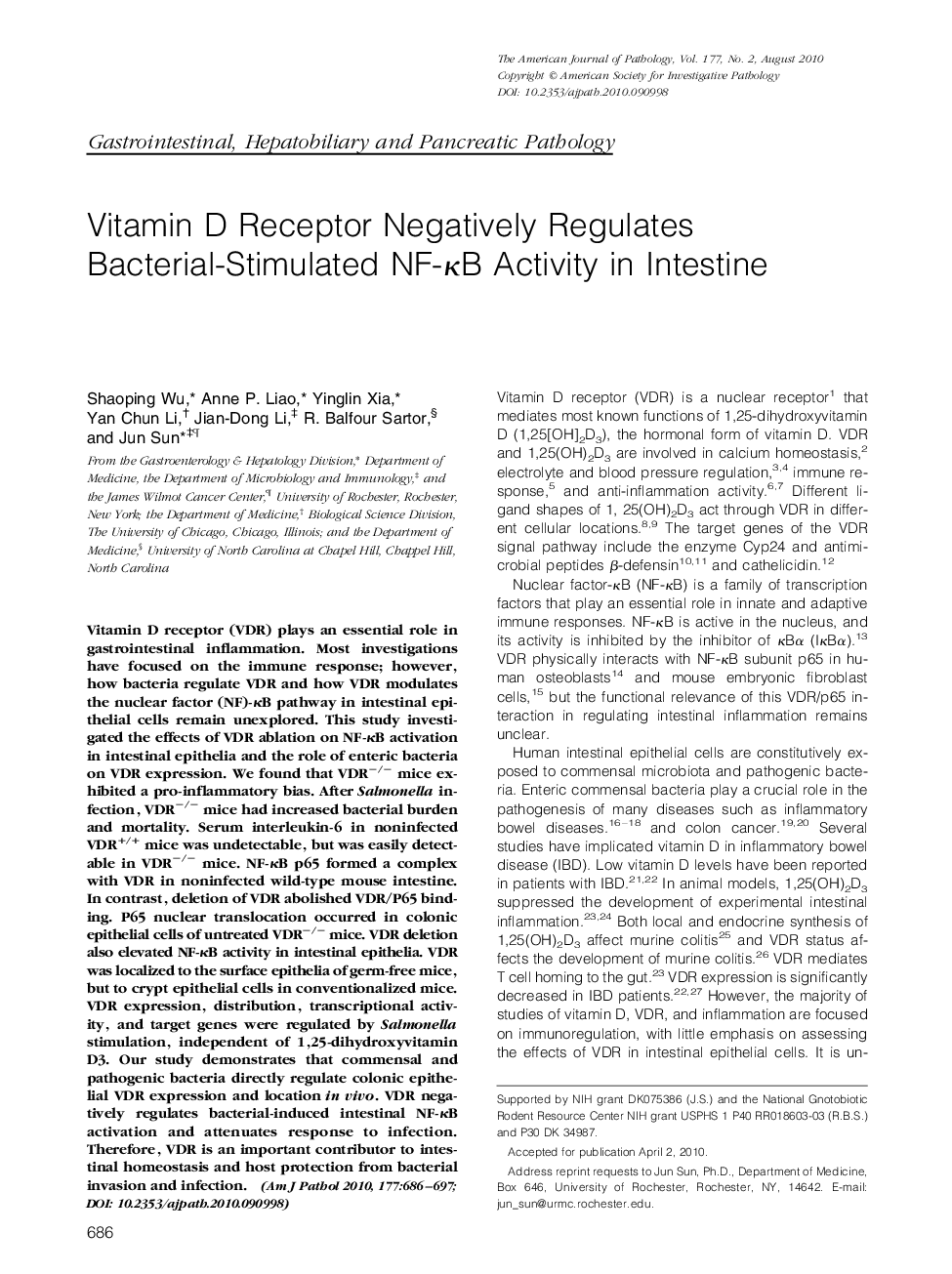| Article ID | Journal | Published Year | Pages | File Type |
|---|---|---|---|---|
| 5934940 | The American Journal of Pathology | 2010 | 12 Pages |
Abstract
Vitamin D receptor (VDR) plays an essential role in gastrointestinal inflammation. Most investigations have focused on the immune response; however, how bacteria regulate VDR and how VDR modulates the nuclear factor (NF)-κB pathway in intestinal epithelial cells remain unexplored. This study investigated the effects of VDR ablation on NF-κB activation in intestinal epithelia and the role of enteric bacteria on VDR expression. We found that VDRâ/â mice exhibited a pro-inflammatory bias. After Salmonella infection, VDRâ/â mice had increased bacterial burden and mortality. Serum interleukin-6 in noninfected VDR+/+ mice was undetectable, but was easily detectable in VDRâ/â mice. NF-κB p65 formed a complex with VDR in noninfected wild-type mouse intestine. In contrast, deletion of VDR abolished VDR/P65 binding. P65 nuclear translocation occurred in colonic epithelial cells of untreated VDRâ/â mice. VDR deletion also elevated NF-κB activity in intestinal epithelia. VDR was localized to the surface epithelia of germ-free mice, but to crypt epithelial cells in conventionalized mice. VDR expression, distribution, transcriptional activity, and target genes were regulated by Salmonella stimulation, independent of 1,25-dihydroxyvitamin D3. Our study demonstrates that commensal and pathogenic bacteria directly regulate colonic epithelial VDR expression and location in vivo. VDR negatively regulates bacterial-induced intestinal NF-κB activation and attenuates response to infection. Therefore, VDR is an important contributor to intestinal homeostasis and host protection from bacterial invasion and infection.
Related Topics
Health Sciences
Medicine and Dentistry
Cardiology and Cardiovascular Medicine
Authors
Shaoping Wu, Anne P. Liao, Yinglin Xia, Yan Chun Li, Jian-Dong Li, R. Balfour Sartor, Jun Sun,
